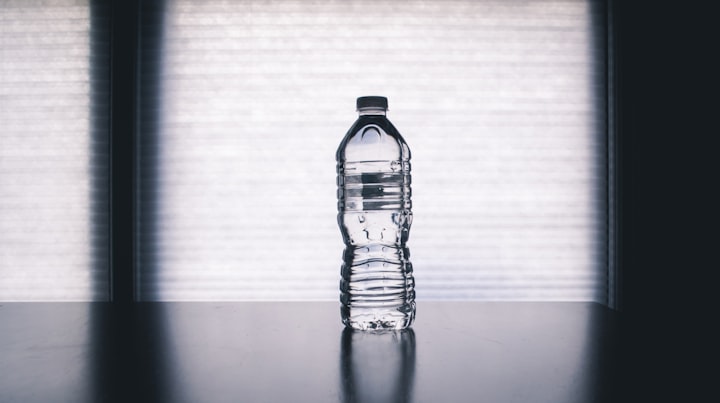
We've all done it: you leave your water bottle on your desk all weekend, have too many glasses of water to count around the home or leave a tumbler on your bedside table semi-permanently. You may be concerned about the safety of drinking the water that has been left behind in your home or office.
Is it important whether the glasses or bottles were covered or not? Is the material of the container they've been sitting in significant? While many single-use plastic water bottles carry expiration dates, it might be more difficult to determine what to do with water left in other containers. Let's take a deep breath in some ancient water: Everything you need to know about your nightstand water stockpile is right here.
What Happens to Water as It Sits?
What's going on in that glass of water at your bedside when you're fast asleep? So, a few things.
First and foremost, when your water sits, especially if it is left uncovered for eight hours or more, the carbon dioxide in the air begins to mix with it. This chemical reaction will produce weak acid, lowering the pH level of your water. While this water is still perfectly safe to drink, its pH is the primary reason why it tastes odd the next morning.
Another thing to bear in mind is that every sip from your glass or water bottle introduces new microorganisms. Most of the time, this bacteria comes from your mouth, but it could also come from a loved one. Unwashed hands are also at work here—it's so easy to grab the lip of a glass or the straw found on many reusable water bottles these days.
Because the bacteria in our mouth is ours, it is unlikely to cause illness. Sharing drinks with others and introducing bacteria found on your hands—especially if they haven't been washed recently—may be hazardous, potentially introducing bacteria into your system that can make you sick. This risk increases when our water is exposed to heat (particularly the severe temperatures found in a car's interior), as heat encourages bacteria growth.
If you leave your water vessel out overnight or for an extended amount of time, the water may pick up dust, dirt, or other microscopic particles from the air that circulates in your home, office, car, or wherever else you store it. While these are unlikely to damage you, they may change the flavor of your water the next day.
Because chlorine destroys germs, parasites, and viruses, it is present in tap water. When chlorine is exposed to air, it evaporates and can be completely removed from water in one to five days. Depending on how long your water has been left out, it may have lost its built-in bacterial defense mechanism by the time you pick it up.
Does the Container Matter?
Material matters when it comes to the containers we use to keep our water. You've certainly heard that plastic water bottles are bad for your health—remember the late-2000s BPA-free movement? BPA, or bisphenol A, is a known endocrine system disruptor that interferes with our natural hormonal processes and was previously detected in plastic water bottles. BPA has also been connected to various ailments, including heart disease and reproductive disorders, according to research.
There is some risk even with the BPA-free plastic bottles that have slipped into that market gap. Most plastic water bottles these days are comprised of polyethylene terephthalate (PET), which can leach hazardous compounds when exposed to heat or direct sunlight. Microplastics are also a worry since they leach more quickly into water from plastic bottles and can build in our organs, causing a slew of health issues when taken in significant quantities.
It's also worth noting that if you do use single-use plastic bottles, you should avoid washing and reusing them. Despite the environmentally favorable motivation behind this decision, it may increase the likelihood of microplastic and chemical leaching. The expiration dates on these single-use bottles also indicate when further chemical leaching will occur, so pay close attention.
With all of this information, there's never been a better time to buy a glass or metal reusable water bottle—if you haven't already! The only drawback to these options is that metal reusable bottles can quickly heat up, promoting the growth of any germs that may be lurking in your water.
I would love to offer some useful tips to help you ensure the safety of your drinking water.
In the end, day-old water isn't at the top of the list of public health concerns. That old water on your counter, the water left overnight next to your bed, or even the days-old water on your office desk from Friday are all fine to drink. They are unlikely to make you sick, but they may not taste very good—especially if they have been kept exposed.
If you want to be extra cautious, consider the following:
- Water should be kept covered and in glass or metal containers.
- Look for reusable bottles with screw caps to keep potentially hazardous bacteria from your hands (or the bag it's been rolling about in all day) out of your water.
- If the water in your bottle is getting old, give the last few sips to your houseplant.
- If you do have single-serve plastic water bottles, keep them in a cold, dark place and keep an eye on the expiration date.
- It's better to avoid drinking water that's been sitting in a hot car for a while.
- If you are immunocompromised in any manner, drink a fresh glass or reusable bottle of water every day.
- Avoid sharing water since you never know if your loved one is coming down with a cold (or a cold sore). Alternatively, you may be the one with a cough, so this helps you prevent making your friends and family sick.
- If you have a large bottle of water that you want to keep fresh for several days, consider putting individual servings into different glasses or vessels. This helps to restrict the amount of bacteria injected into the bottle.
It's generally safe to drink water that has been sitting for a day or a few days, as long as you haven't shared it with others at the gym or left it unattended for a week. To be extra careful, consider getting a new glass or reusable water bottle daily. This will not only keep your water fresh and tasty, but also encourage you to drink more and avoid leaving water sitting around. Stay hydrated and enjoy!
About the Creator
Ade Bimfo
Facts, Physiology, Mystery, News, Football, and anything interesting.
Feel free to suggest topics for me to cover in my posts. I'll do my best to provide interesting and informative content. Enjoy reading!






Comments
There are no comments for this story
Be the first to respond and start the conversation.